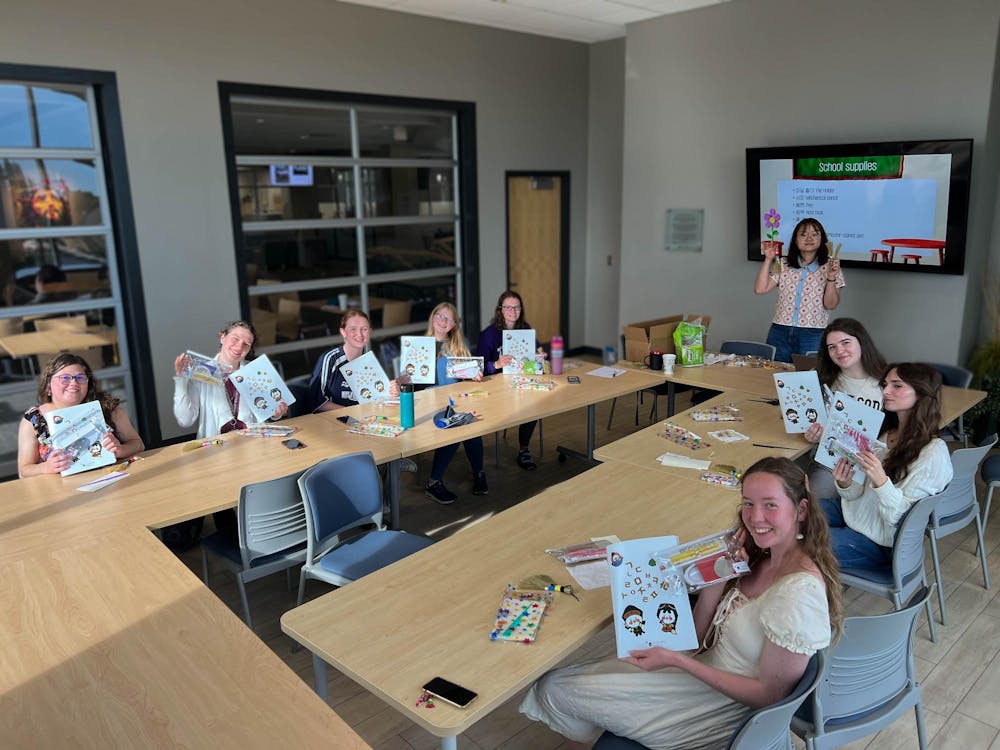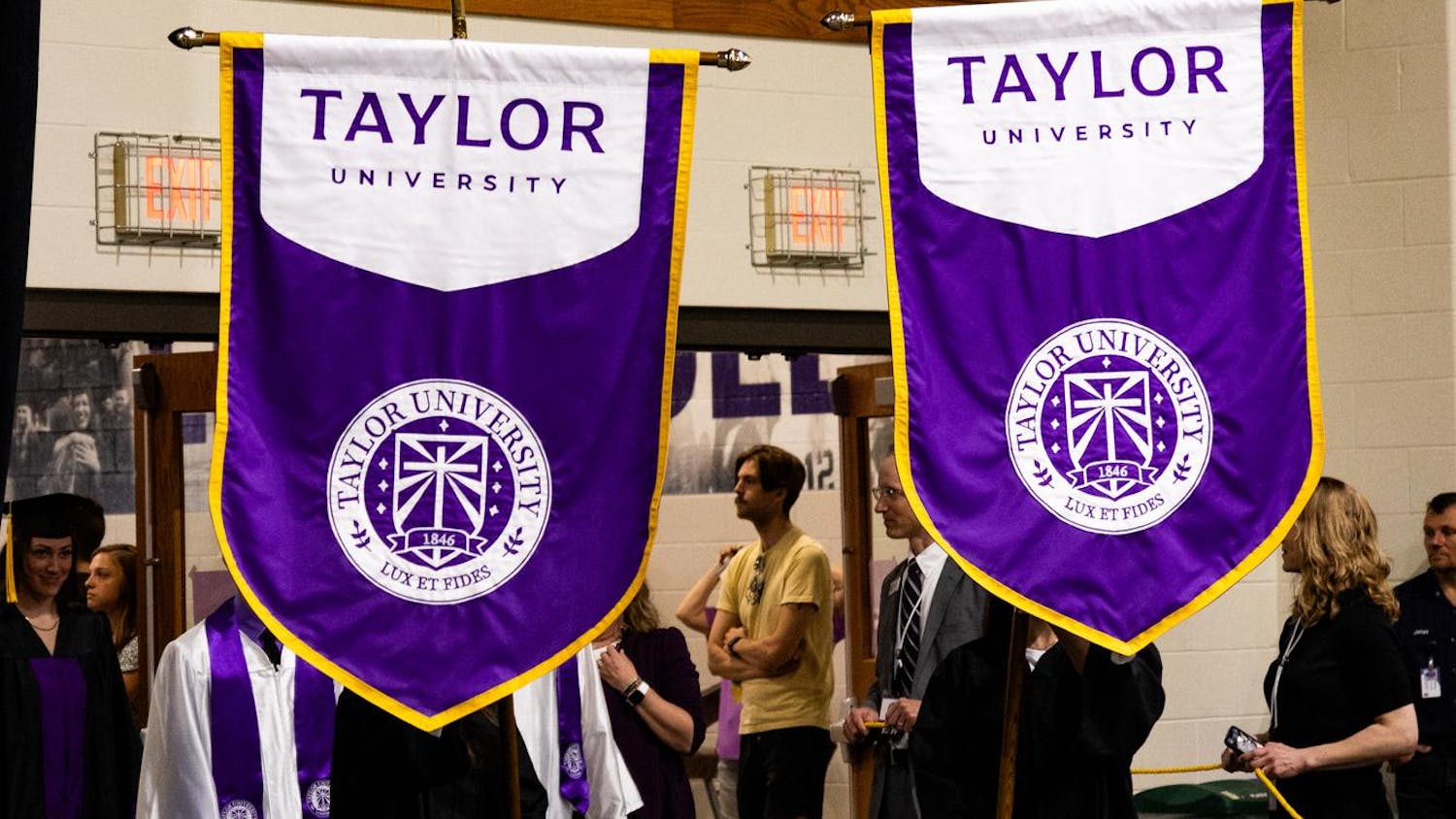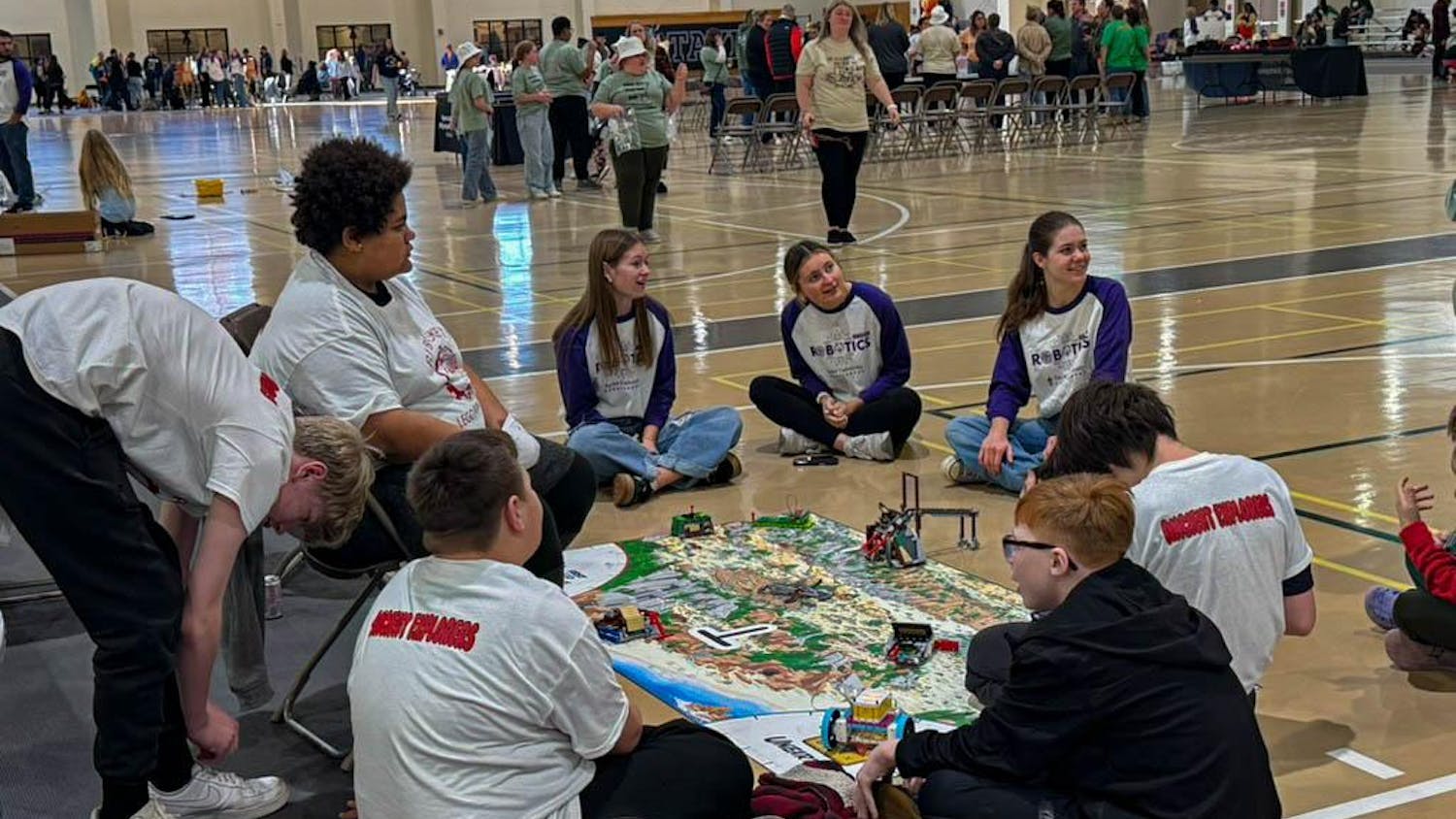Students engage in fun activities and learn about Korean culture when they meet for Korean Culture Club (KCC) on Tuesday nights.
“The goal of the KCC is to introduce students of Taylor University to Korean culture...and educate people about what is [happening] on the other side of the world,” junior Valeriia Vinokurova said.
The club is offered by King Sejong Institute, which disseminates Korean language and culture through classes and clubs.
The main goal of the institute is to help students learn the Korean language, but learning Korean culture is essential to understanding the language because a deep understanding of the culture will help students avoid unintended rudeness or misunderstandings.
The King Sejong Institute–Upland is one of only ten institutions in the U.S.
“[The King Sejong Institute] is operated with a grant from the Korean government,” Professor Grace Lee said. “Upland Sejong Institute is an organization jointly established by Taylor University and Handong [Global] University in Korea, dispatching graduates who majored in Korean language education at Handong [Global] University.”
KCC is managed and prepared by Professor Selena Lee and Professor Grace Lee (who teach classes KOR 101-202). They take the time to prepare themes and class materials for an engaging learning experience.
The club’s gatherings include activities such as crafts, games, learning Taekwondo, watching historical films and exploring national Korean events.
Some of these crafts and games include making traditional Korean houses out of paper, creating and playing Jegichagi (a game using coins and plastic bags) and making traditional calligraphy brushes.
Upcoming events include learning classic Korean children's songs, learning about the Silla dynasty (57 B.C. to 935 C.E.) while making symbolic golden crowns and trying winter street foods with each food being spicier than the last.
Also upcoming is a discussion on the controversial island named Liancourt Rocks. The island has a rich and complicated history and is known as Dokdo (meaning solitary island) by the Koreans and Takeshima (meaning bamboo island) by the Japanese.
The island is administered by Korea, but both Japan and Korea have had a long and complex emotional and political history with the island lasting hundreds of years.
Hallyu, also known as the Korean wave, is the global popularity spike of South Korean culture that stemmed from TV, film and music.
K-pop artists such as BTS, BLACKPINK and Rosé have made noticeable global impacts as well as the Netflix series “Squid Game” and film “KPop Demon Hunters.”
The KCC is excited about the growing interest in Korean culture and wants to educate people further while using a communal and often hands-on approach.
KCC meets from 4–6 p.m. on Tuesdays in room 241 of LaRita Boren Campus Center.
“If you have any interest in the Korean language or culture, please contact us,” Professor Lee said. “Or just come and visit. 241, on every Tuesday, four to six. We want to invite you all.”
For any questions regarding the Korean Culture Club, reach out to yoonjung_jung@taylor.edu.




